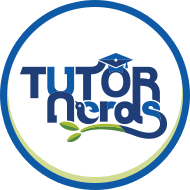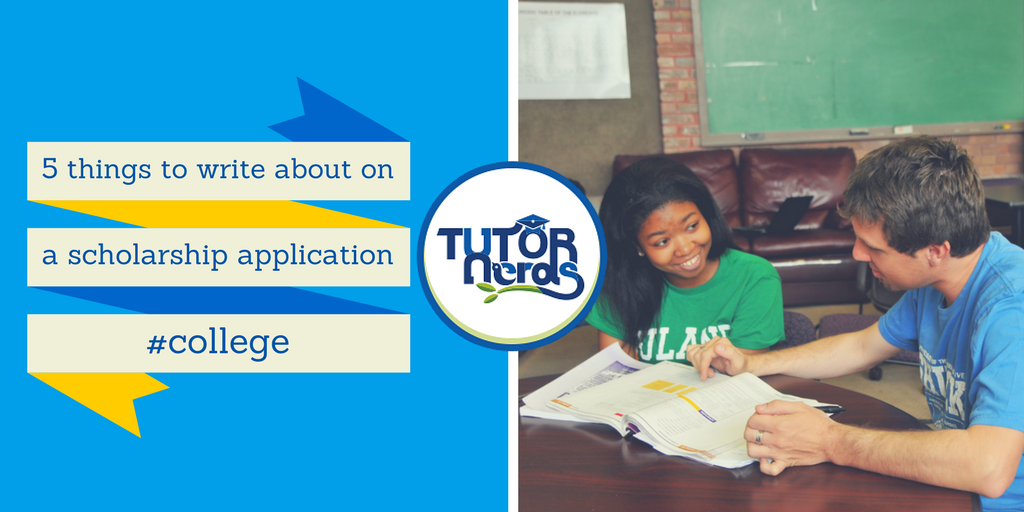5 things to write about on a scholarship application


Spring is the season when high school seniors find out where they have been accepted to college. Now that they’re in they just had to have to figure out how to pay for it and that can be quite a feat when students include tuition, living expenses, books, etc. There are so many scholarships available out there ranging from a couple of hundred dollars to several thousand dollars. Many students avoid filling out scholarship applications because they don’t know what to write about or what’s important to include as part of their personal statement. Students who need a little help brainstorming can look at these five tips to help them get started.
Many scholarships focus on a particular field and so students should start out by writing about the major they intend to go into. Students can be broad and write about something like medicine, engineering, or art or they can get more specific and talk about the sub field or specialty they’re especially interested in. Students can benefit from writing this type of personal statement in advance of actually filling out a specific application because they should get comfortable talking about their passions and goals. Students can easily edit for word count or applicability later on.
Another important thing for students to write about is their future career goals. This is related to their field of study in many ways, but career goals are often more specific and involve a linear timeline. Perhaps a student wants to start out as an intern or volunteer and lead up to being the CEO one day. Maybe a student wants to travel the world or learn different languages and study diverse cultures. Career goals can be financial and practical, or they can be creative and diversified. However, scholarship committee’s want to make sure that a student is driven and that they know what they want for their future before they write a check to anyone (READ: 5 Things to do Before You Go Away to College).
Another thing scholarship committees love to hear about is the student’s volunteer experience. When students have been giving back to their community and have compassion for those in need they are more likely to be a great candidate to receive what is essentially free money. This is another thing students can write about upfront because it’s specific to their situation but can easily be edited for word count later on. Students should talk about why they chose a particular activity and why it was so important to them. If a particular volunteer commitment is related to an applicant’s intended career field, it’s especially important to mention that.
Another great thing for students to write about is anything specific to their personal interests or a hobby that relates in some way to college or career. Hobbies don’t have to be the same as a student’s intended major, however; students might be going into English and communications but love to paint or they might be going into math but volunteer at a soccer camp. Hobbies make students more diversified both on paper and in real life, something that many scholarship committees’ don’t see when they look at a simple resume and personal statement. Writing about a personal interest is a great way for an applicant to stand out amongst the crowd.
One of the most difficult things for students to write about, but one of the most essential, is their personal worldview. Many students haven’t completely developed a worldview at this age, but they should have feelings about certain issues that are important to their age group or their life. It can be something hard to write about, but students are encouraged to sit down and think about what matters to them and how they want to change the world in front of them. Do they want to work on solving the problem of poverty in their local community or do they have an opinion on international politics, for example? A worldview can be related to the entire world or a small local community, and there isn’t necessarily right or wrong opinions. However, it’s important that a student has an opinion and that they’re able to discuss why they feel this way.

100% Satisfaction Guarantee
You’ll love your tutor, or you don’t pay.

We will evaluate your situation and answer any questions. We will then individually match you with one of our tutors. Your tutor will recommend the best strategies for you based on your goals. You’ll work with the same tutor ongoing and you can schedule directly with your tutor.
100% Satisfaction Guarantee – You’ll love your tutor, or you don’t pay
| Cookie | Duration | Description |
|---|---|---|
| cookielawinfo-checkbox-analytics | 11 months | This cookie is set by GDPR Cookie Consent plugin. The cookie is used to store the user consent for the cookies in the category "Analytics". |
| cookielawinfo-checkbox-functional | 11 months | The cookie is set by GDPR cookie consent to record the user consent for the cookies in the category "Functional". |
| cookielawinfo-checkbox-necessary | 11 months | This cookie is set by GDPR Cookie Consent plugin. The cookies is used to store the user consent for the cookies in the category "Necessary". |
| cookielawinfo-checkbox-others | 11 months | This cookie is set by GDPR Cookie Consent plugin. The cookie is used to store the user consent for the cookies in the category "Other. |
| cookielawinfo-checkbox-performance | 11 months | This cookie is set by GDPR Cookie Consent plugin. The cookie is used to store the user consent for the cookies in the category "Performance". |
| viewed_cookie_policy | 11 months | The cookie is set by the GDPR Cookie Consent plugin and is used to store whether or not user has consented to the use of cookies. It does not store any personal data. |
